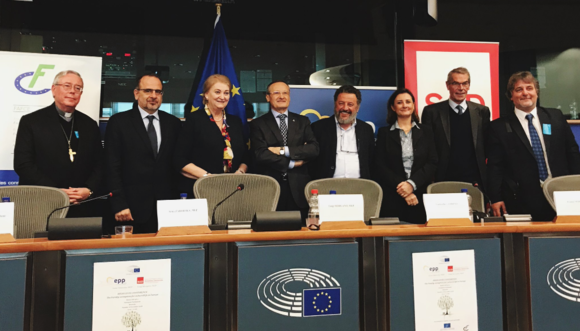NEWS
COMECE calls for EU family-friendly policies

Archbishop Jean-Claude Hollerich SJ, President of COMECE, called on EU politicians to promote family-friendly policies during the FAFCE-organised conference “The Family: ecosystem for cultural life in Europe” held at the European Parliament on 6 November 2018. “The family is a place of trust and a source of solidarity – stated Mgr. Hollerich SJ. It is the environment where we are growing up, discovering our strengths … Continue reading






